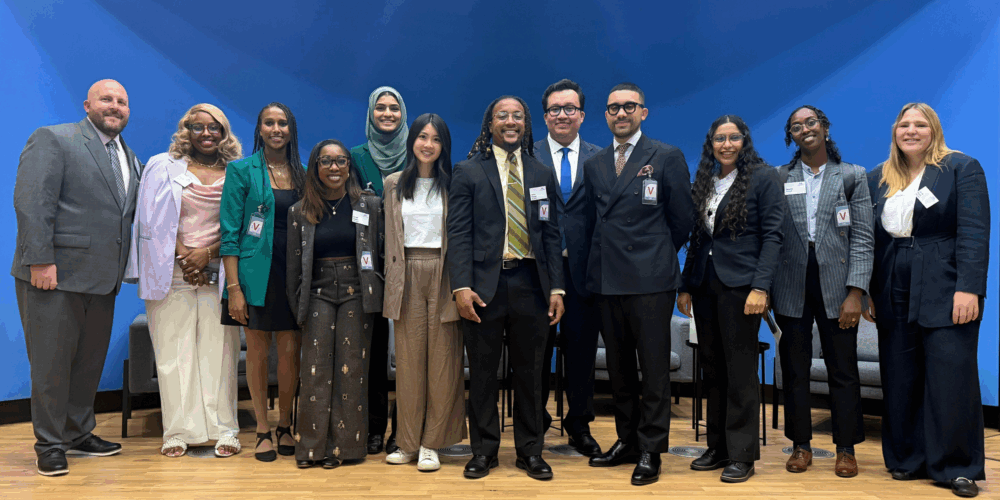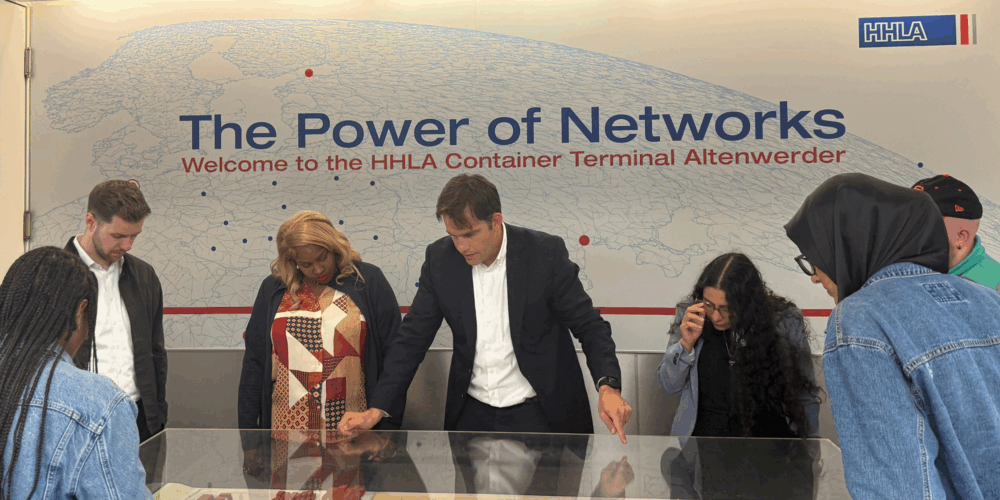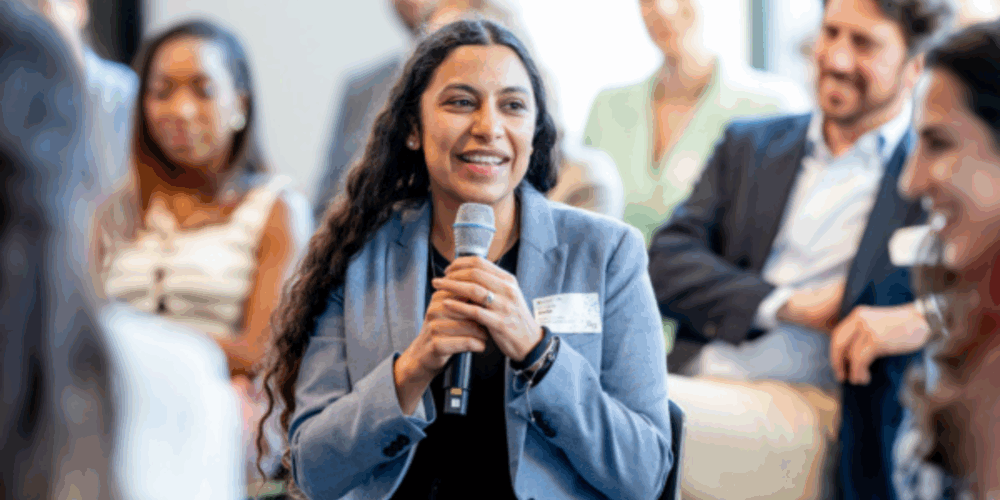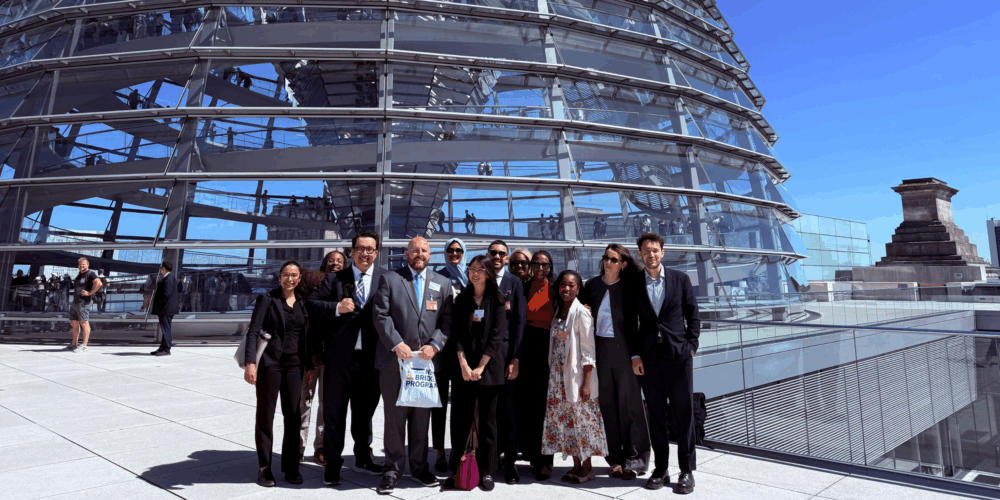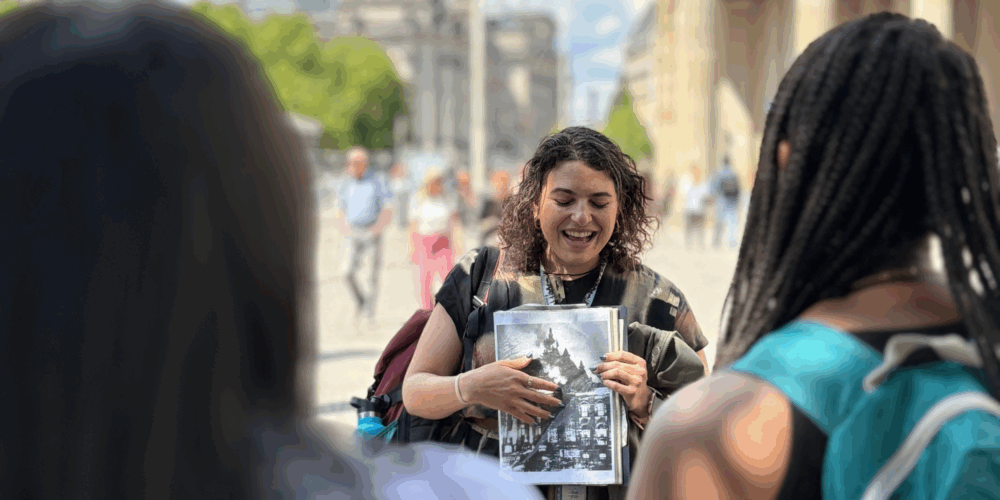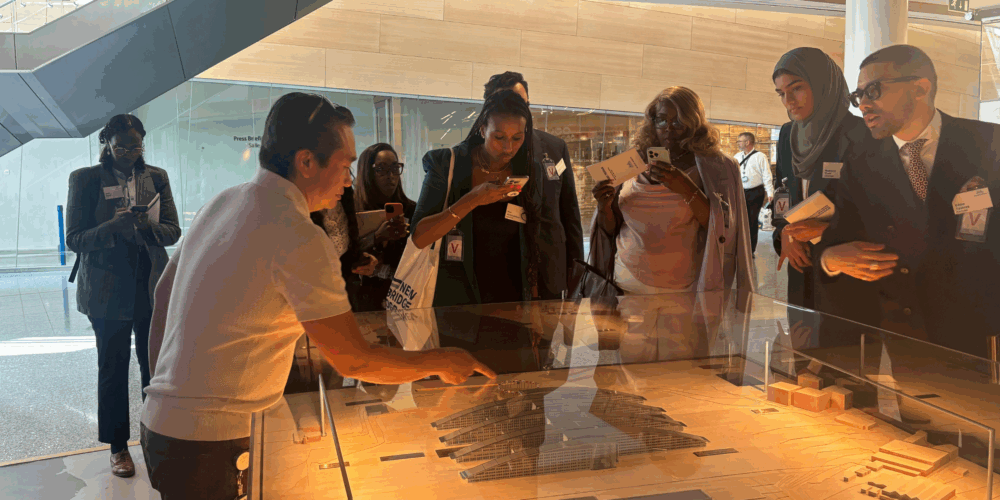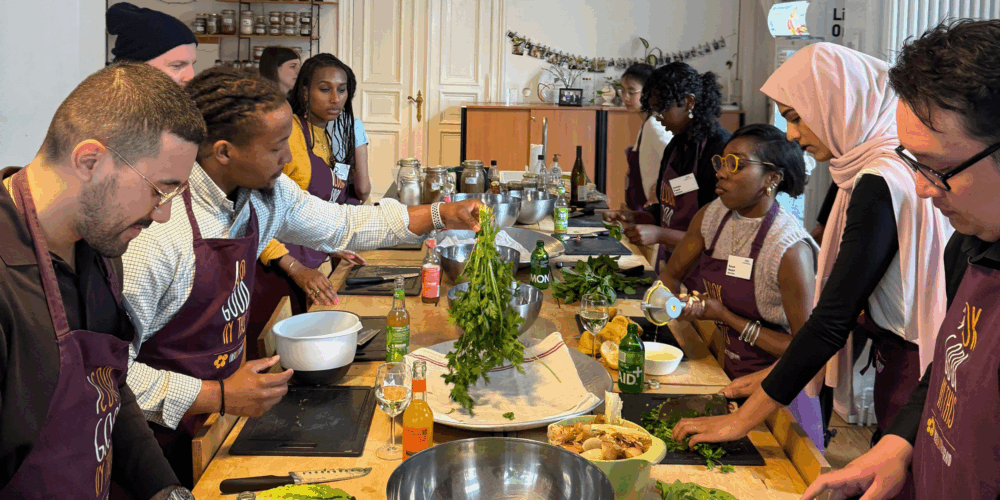“I leave with a sharper lens on how transatlantic relations can evolve”
Ten young American leaders embarked on a whirlwind trip in May 2025 to help build a new Atlantic bridge in a fraught time for the U.S. and Germany.
By Alyssa Lukpat, Khadidah Stone and Kevin McPherson
In a time of rising geopolitical tension, the 2025 New Bridge Program gave ten emerging American leaders the chance to explore transatlantic partnerships. Over 10 days in May, the fellows visited Washington, D.C., Brussels, Berlin, and Hamburg to meet with European policy makers, civic leaders, students, and business experts. They gained a deeper understanding of how shared democratic values are tested and sustained across borders.
This year’s cohort was diverse in discipline and in identity. Representing spheres including politics, healthcare, technology, media, and sustainability, the fellows were united by a desire to build transatlantic bridges.
The Evolving Transatlantic Relationship
Multiple speakers expressed concerns over the shifting relationship between Europe and the U.S. under President Trump. They discussed how the president’s attempts to isolate the U.S. are pushing Europe to invest more in NATO, climate work and its other trading partners. This was clearest at NATO headquarters in Brussels, where the cohort met with Nina Šoljan, head of NATO affairs and security policy. She underscored how NATO’s strength lies not just in military readiness but in its ability to adapt to political uncertainty.
“It was powerful to witness the deep dedication to maintaining a peaceful and stable Europe firsthand.”
“With so many military and political shifts happening in the region, it was powerful to witness firsthand the deep dedication from the staff and its members to maintaining a peaceful and stable Europe,” said fellow Eddie Taveras, a political strategist.
The group further discussed transatlantic unity at the European Parliament, where Member Michael Bloss challenged the fellows to consider what long-term collaboration between democracies requires – especially on climate, digital regulation, and migration. At the Bundestag in Berlin, Parliamentarian Metin Hakverdi emphasized the enduring importance of coalition-building and civic engagement in countering political polarization.
For many fellows, these meetings offered a striking contrast to the American legislative environment. “One of the biggest takeaways for me is the role that compromise plays in Germany’s political system,” said Mae Abdelrahman, chief of staff at a workforce development nonprofit. “Seeing how a government could be structured around collaboration and consensus gave me a new appreciation for what’s possible—even if it’s not always easy”.
Germany’s Dark Past Informs Its Future
Another cornerstone of the program was Germany’s relationship with its history. From an academic briefing at Georgetown University to poignant visits to the U.S. Holocaust Memorial Museum, the German Historical Institute, and Berlin’s public memorials, the fellows saw firsthand how Germany makes an effort to remember its darker days. The country designed its democratic system to prevent authoritarianism and safeguard minority rights.
“There’s a collective intentionality to German democracy – rooted in memory, but focused on accountability.”
“It was meaningful to see all the ways Germany’s systems and customs are a response to the past,” Mae reflected. “There’s a collective intentionality to their democracy that feels different – rooted in memory, but focused on accountability.”
Jason Posley, a public-health advocate from St. Louis, said he would take these lessons back to the marginalized communities he works with. “Germany shows a lot of respect for its history, even the hard parts,” he said. “Knowing the history behind the issues we’re trying to solve helps us get to the root of the problem, not just the surface.”
Many fellows discussed their belief that Germany has overcorrected itself since the war. For example, the group had long discussions about the benefits and downsides of Germany not collecting race data from citizens, a practice that was exploited in the Holocaust.
Walking through the Berlin Wall Memorial, the Brandenburg Gate, and the Reichstag dome, the cohort witnessed how architecture and public space can become tools of civic education. These were reminders that democracy requires visibility, participation, and constant reflection.
Innovation Rooted in People
The fellows engaged deeply with German models of innovation in education, health, and climate. In Hamburg, the fellows attended a workshop to meet young professionals who entered vocational training and forgoed additional schooling. The mentoring and scholarship network Schotstek and the Joachim Herz Stiftung hosted a workshop to highlight how Germany’s dual-education system blends academic instruction with on-the-job experience. “The students shared how their training prepared them for multiple futures – not just one career path,” Mae said. “It made me think about how we can design more flexible, empowering models of education in the U.S.”
“In the U.S., we often celebrate speed of innovation, sometimes at the cost of patient trust or transparency.”
Technology and healthcare were central themes as well. At a roundtable at Microsoft Berlin and a three-hour dinner conversation with Shireen Saxena of AI healthcare company Ada Health, they shared conversations about artificial intelligence and Germany’s strict data-privacy laws. “We discussed how Germany’s strong data protection policies influence what’s possible with AI in healthcare,” noted fellow Kevin McPherson, a machine learning engineer. “In the U.S., we often celebrate speed of innovation, sometimes at the cost of patient trust or transparency. It was eye-opening to see the trade-offs more clearly.”
At Adelphi, a sustainability think tank, the group explored Germany’s clean energy transition and the role that transatlantic cooperation plays in driving innovation. They learned about how climate leaders are translating high-level policy into tangible efforts, from port logistics to carbon targets, reinforcing the notion that global problems demand shared solutions.
Lasting Impressions and Common Purpose
What set the New Bridge Program apart wasn’t just access to institutions, but the collective learning. Through shared meals, long airplane rides, and cultural immersion, the fellows found in one another wellsprings of insight, humor, and solidarity. They pushed each other to think harder, speak up, and reflect deeper.
Fellow Eddie Taveras summed it up best: “What I’ll take back with me is a deeper understanding of how history, culture, and politics shape national identity–and how that identity influences a country’s place in the world. From witnessing the commitment at NATO to engaging in tough but necessary conversations about race, equity, and partnership, I leave with a sharper lens on how transatlantic relations can evolve”.
In the end, the 2025 New Bridge cohort left Europe with more than just stamps in their passports. They gained a richer view of what democracy looks like in practice and developed a renewed sense of purpose about building transatlantic bridges that can withstand the storms ahead.
For more insights into the trip, watch these interviews with our fellows:
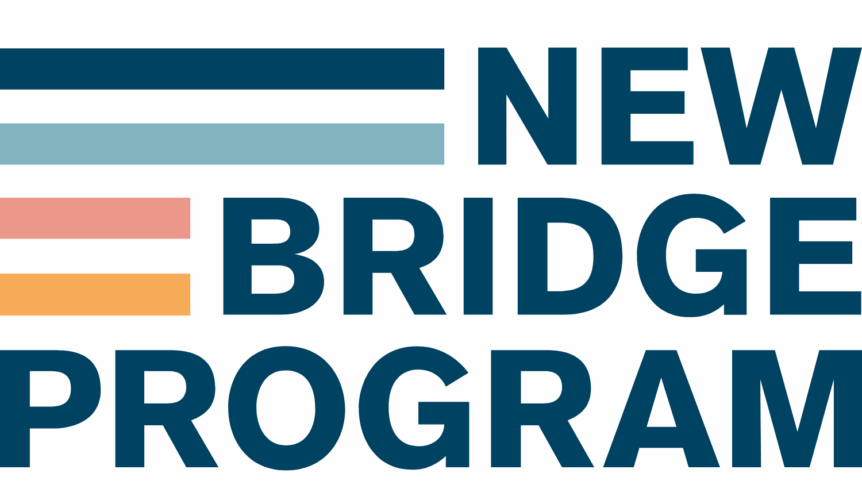
New Bridge to Germany is supported by the Transatlantic Program of the Federal Republic of Germany, funded by the European Recovery Program (ERP) of the Federal Ministry for Economic Affairs and Climate Action (BMWK), and by the Joachim Herz Foundation.

